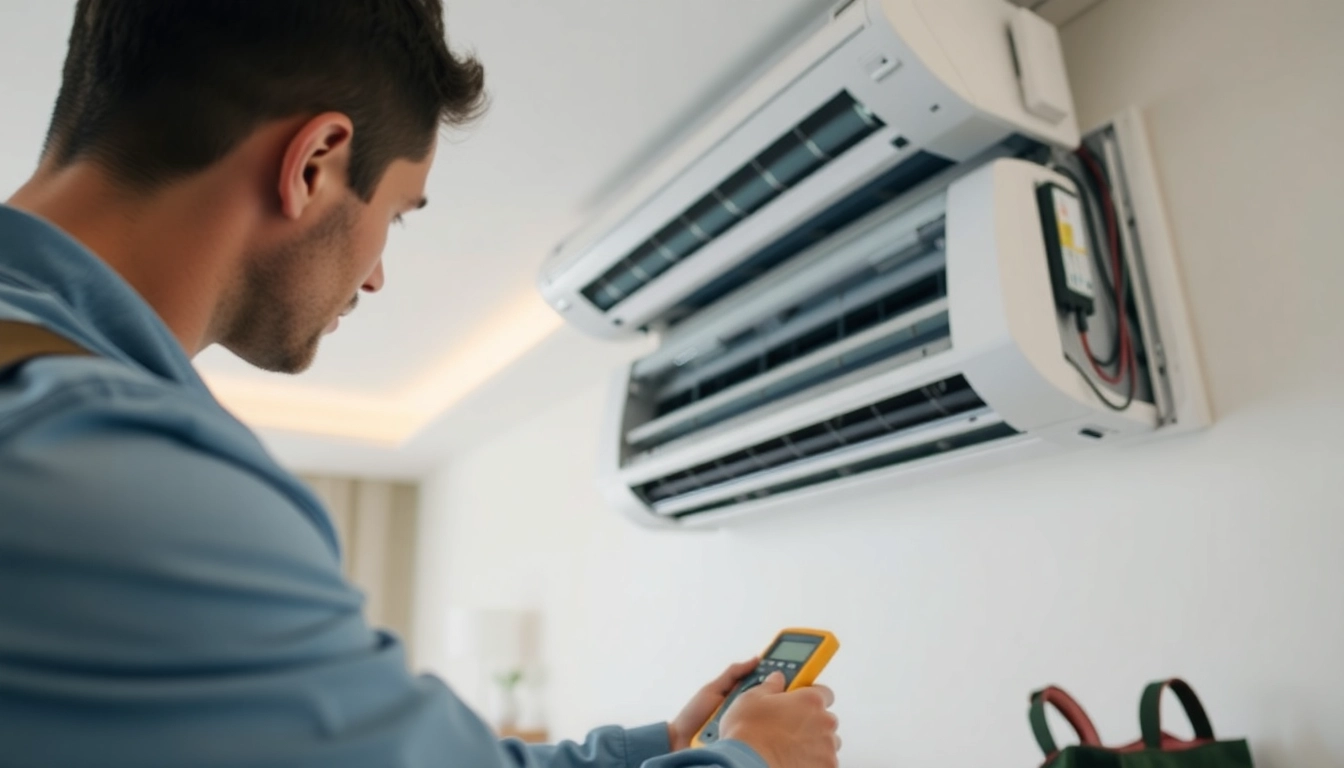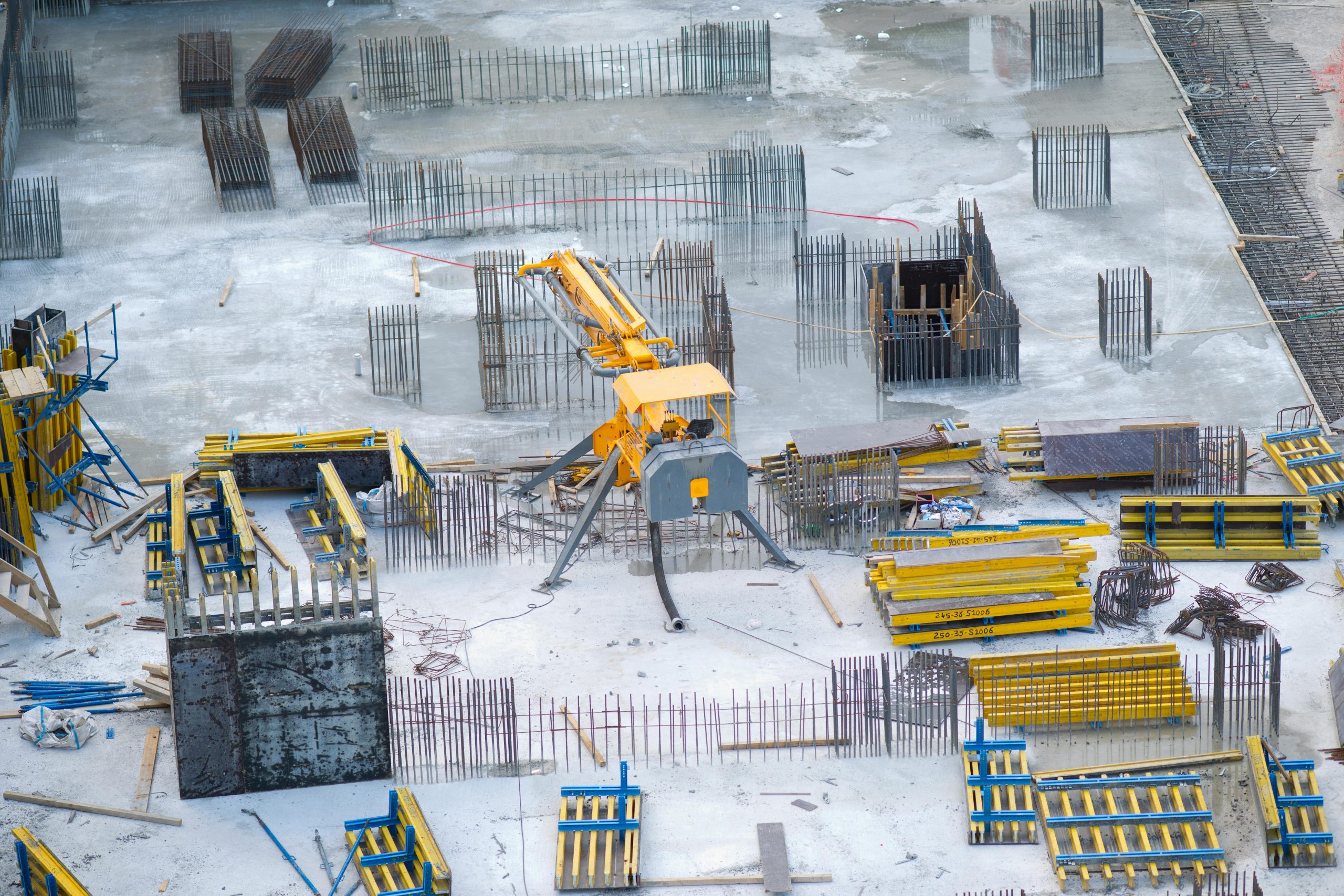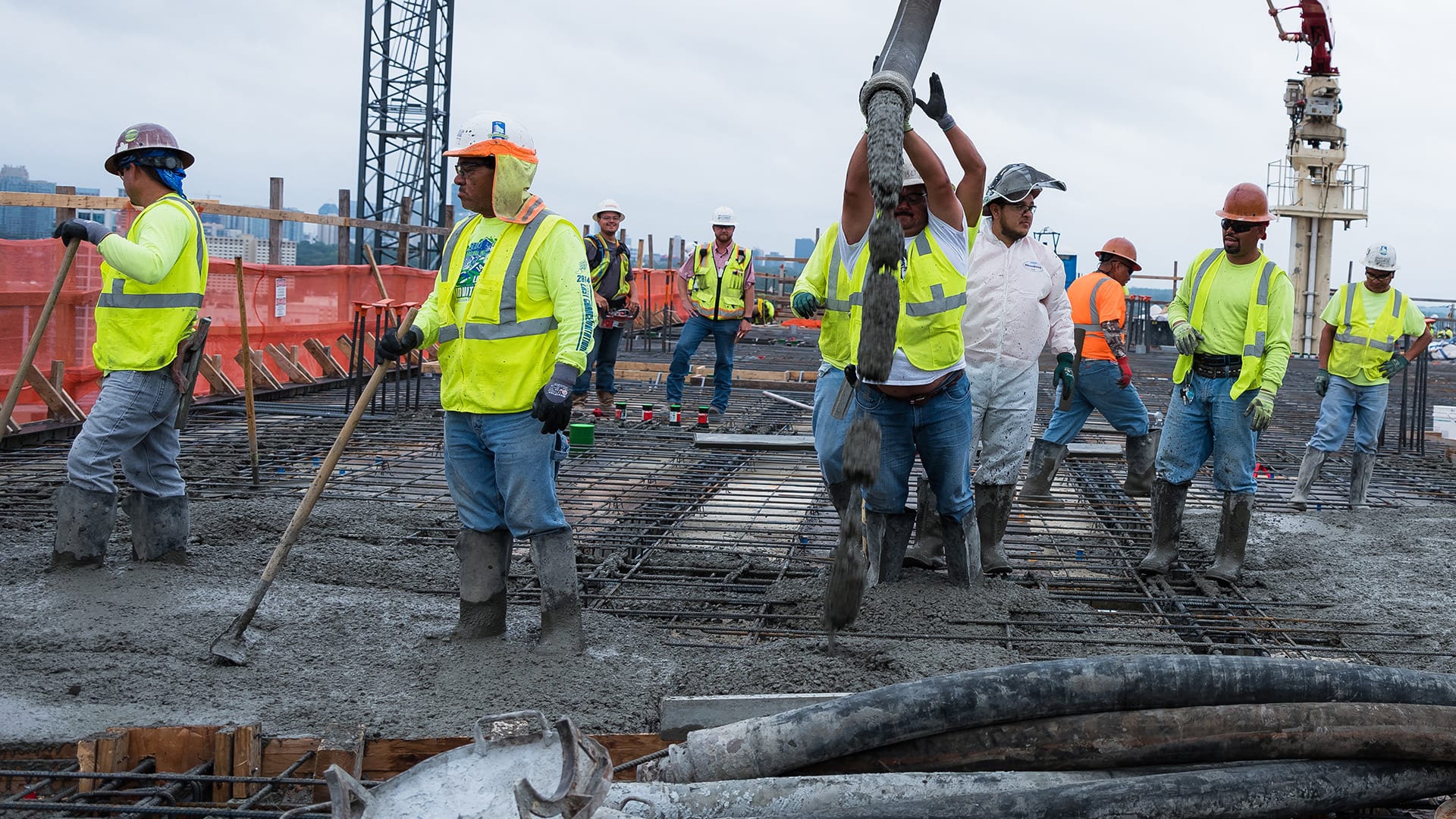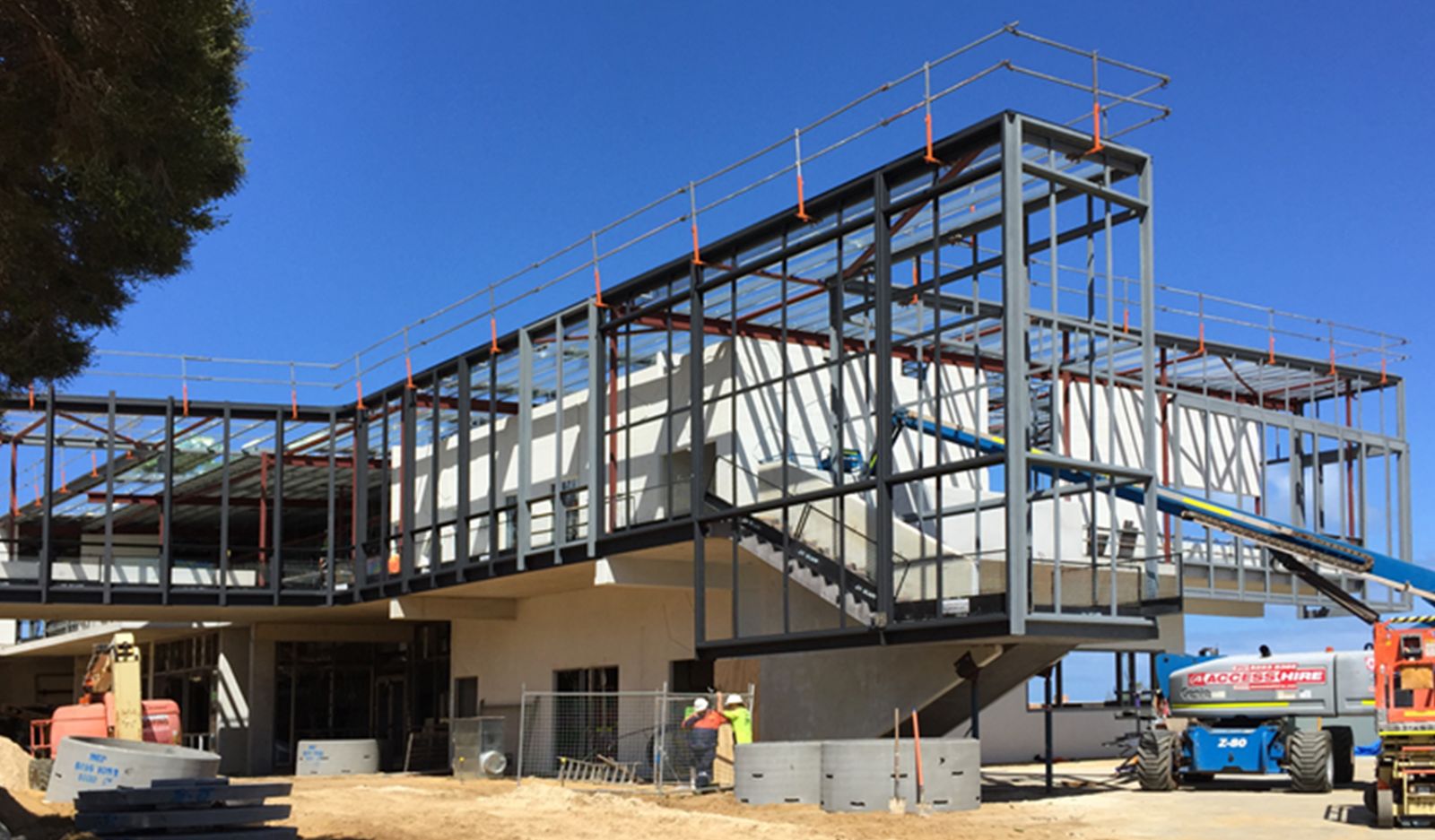
Understanding AC Issues in Mesa AZ
The state of your air conditioning system can significantly impact your comfort during the sweltering summers in Mesa, AZ. With temperatures often soaring above 100°F, having a reliable AC system isn’t just a luxury—it’s a necessity. To ensure your unit operates efficiently, it’s crucial to stay informed about common issues that might arise and how to address them. In this guide, we will explore various aspects surrounding ac repair mesa az, offering insights into identifying problems, evaluating service options, and maintaining your system for maximum efficiency.
Identifying Common AC Problems
Air conditioning units, like any mechanical system, can experience a variety of problems over time. Common issues include:
- Inadequate Cooling: If your AC isn’t cooling effectively, it may be due to low refrigerant levels, dirty coils, or a malfunctioning compressor.
- Noisy Operation: Strange noises such as banging, rattling, or hissing sounds can indicate mechanical issues or loose components that require immediate attention.
- Frequent Cycling: If your AC is constantly turning on and off, it could be a sign of an issue with the thermostat, a dirty air filter, or an undersized unit.
- Unpleasant Odors: Foul smells coming from your unit may suggest mold or mildew buildup, which can impede air quality.
- Water Leaks: Excess moisture around your AC can indicate clogged drain lines or refrigerant leaks, both of which necessitate professional intervention.
Evaluating Signs of Inefficiency
Beyond the obvious operational failures, inefficiencies in your AC system can often manifest in subtle ways. Paying attention to these signs can save you from more significant issues down the road:
- Rising Energy Bills: If you notice a spike in your energy costs even under normal usage, your AC might be working harder than necessary due to inefficiencies.
- Inconsistent Temperatures: If certain areas of your home feel cooler than others, it may indicate airflow issues or duct leaks.
- Short Cycling: Frequent on-off cycling can lead to increased wear and tear, potentially resulting in costly repairs.
The Impact of Mesa Climate on AC Performance
The harsh desert climate of Mesa significantly affects the performance of air conditioning systems. High temperatures and low humidity levels mean that your AC unit has to work overtime to maintain a comfortable indoor environment. Understanding this relationship can help you make more informed decisions about maintenance schedules and service needs.
Choosing the Right AC Repair Service in Mesa AZ
When your air conditioning system requires repairs, selecting a reliable service provider is essential. Here are some key factors to consider:
What to Look for in a Technician
Finding a qualified technician is critical for ensuring quality service. Look for the following attributes:
- Certifications and Licensing: Ensure that the technician is certified and licensed to perform AC repairs in your area.
- Experience: Choose a technician with a proven track record and extensive experience in handling similar AC issues.
- Customer Service: Quality customer service can greatly enhance your experience; look for providers who communicate clearly and keep you informed throughout the repair process.
Comparing Service Options and Pricing
Not all AC repair services are created equal. To ensure you receive the best value:
- Request Multiple Quotes: Comparing estimates is an excellent way to gauge the price range and services offered.
- Assess Service Packages: Some providers offer comprehensive service packages that include maintenance checks, indicating they prioritize long-term client satisfaction.
- Avoid Lowest Bids: Be cautious of enterprising quotes that seem too good to be true; often, they indicate less thorough service or lower quality parts.
Reading Reviews and Ratings Effectively
Online reviews can provide valuable insights into the reputation and reliability of AC repair services. Consider the following strategies when assessing reviews:
- Look for Trends: Instead of focusing on individual reviews, identify recurring themes in customer feedback for a well-rounded view.
- Check Multiple Platforms: Reviews can vary widely across different platforms; explore multiple sources for a comprehensive understanding.
- Consider Response Rates: How companies respond to negative reviews can reveal a lot about their customer service commitment.
DIY Tips Before Seeking Professional AC Repair Mesa AZ
While there are many situations that call for professional intervention, some minor AC issues can be addressed through simple DIY troubleshooting. Here are a few tips to help you before reaching out for professional help:
Basic Troubleshooting Procedures
Before calling a technician, try these initial troubleshooting steps:
- Check the Thermostat: Ensure that your thermostat is set to a temperature below the current room temperature.
- Inspect the Air Filter: A dirty air filter can drastically reduce efficiency; check and replace filters monthly.
- Clear Debris Around the Unit: Ensure that outdoor units are free of obstructions and debris, enhancing airflow.
How to Maintain Your AC Unit
Proper maintenance can extend the life of your air conditioning system. Implement the following practices regularly:
- Regular Filter Changes: Replace or clean your air filter every month to ensure proper airflow and indoor air quality.
- Annual Professional Tune-Ups: Schedule yearly maintenance checks with a qualified technician to catch potential problems early.
- Clean the Coils: Ensure that both indoor and outdoor coils are clean; dirty coils can increase energy consumption.
When to Call a Professional
Some situations clearly indicate the need for professional intervention. These include:
- Strange Noises: Unusual sounds likely require mechanical expertise.
- Persistent Odors: Persistent bad smells are a sign of underlying issues that could affect air quality.
- Frequent Breakdowns: If your unit needs frequent repairs, it may be wiser to consider replacement rather than continuous repairs.
The AC Repair Process Explained
Understanding the common procedures involved in AC repair can help you feel more comfortable during the process. Here’s what typically happens:
Initial Assessment and Diagnosis
When a technician arrives, they will conduct a thorough assessment of your AC unit. This may include:
- Visual Inspection: A detailed look at the system to check for visible issues such as leaks or corrosion.
- Diagnostic Tests: Utilize specialized tools to check refrigerant levels, electrical connections, and other mechanical components.
- Consultation: Discussing findings with you and ensuring you understand any recommended actions before proceeding.
Common Repair Techniques and Tools Used
Depending on the identified issues, technicians may use a variety of repair techniques, including:
- Refrigerant Recharge: Adding refrigerant to restore levels to optimal performance.
- Compressor Replacement: If the compressor is faulty, replacing it can be a popular solution.
- Electrical Repairs: Fixing wiring connections or replacing malfunctioning components.
Understanding Repair Costs and Timeframes
The cost and time it takes to repair an air conditioning unit can vary widely based on the problem’s complexity. However, consider the following general considerations:
- Average Repair Costs: Simple repairs could range from $100 to $500, whereas more extensive issues may exceed $1,000.
- Timeframes: Basic repairs can often be completed within a few hours, while more involved repairs may require additional time.
- Quotes: Always request detailed quotes before work begins to avoid surprise expenses.
Preventative Measures for AC Longevity
To maximize the lifespan and efficiency of your AC system, several preventative measures should be taken:
Seasonal Maintenance Best Practices
Staying ahead of potential issues is essential. Implement the following best practices:
- Spring Start-Up: Before the hot season, conduct thorough maintenance, including cooling system checks and refrigerant levels.
- Fall Shutdown: Before winter sets in, consider a pre-season check-up to avoid issues when you next need the system.
- Regular Cleaning: Keeping the outdoor unit clear and free of debris can help maintain efficiency and performance.
Upgrading Your AC System for Efficiency
In some cases, an old unit may not be worth continual repairs. Consider the following benefits of upgrading:
- Increased Efficiency: Newer models often come with improved energy efficiency ratings, leading to lower utility bills.
- Enhanced Comfort: Modern systems provide better humidity control and temperature regulation.
- Incentives and Rebates: Many utility companies offer incentives for upgrading to energy-efficient systems.
Insights on Warranty and Service Plans
Familiarizing yourself with warranty options can save you significant costs in the long run:
- Manufacturer Warranties: Understand what your unit’s warranty covers and the duration of coverage. Typically, major components are covered for 5-10 years.
- Service Agreements: Many service providers offer maintenance contracts that cover regular check-ups and priority service at a reduced rate, which can help you avoid costly repairs.
- Understanding Coverage: Always read the fine print to confirm what’s covered under your warranty or service plan.








